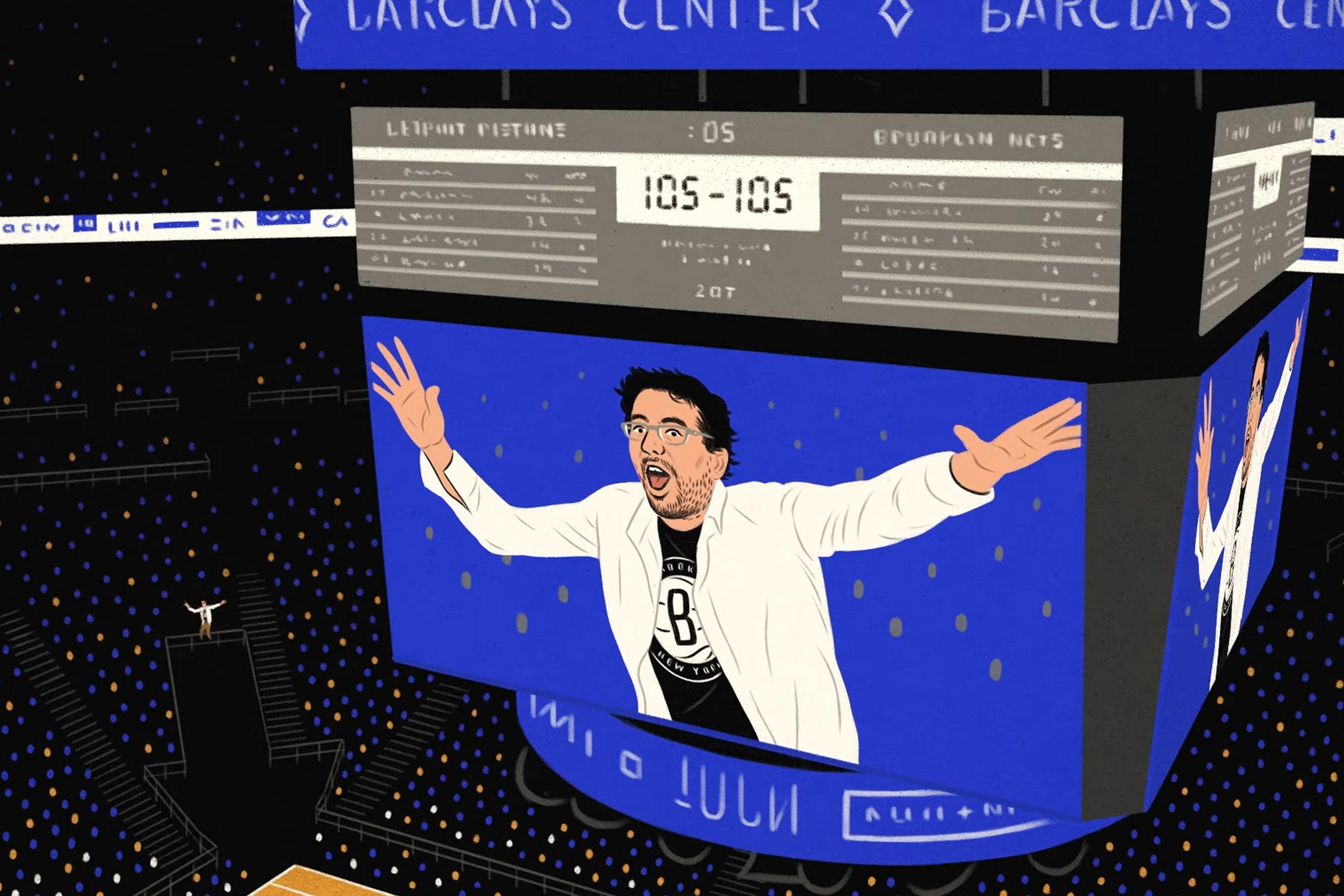It’s possible that you’ve come across Pablo Woodward before on the streets of England, where he performs as the Disco Bunny – a one-man roving dance party dressed in flamboyant raver attire with a mission to entertain and unite passersby. Or more likely you’ve seen him in a viral video – viewed millions of times – that shows him and an elderly woman in Brighton letting loose to Twist and Shout during one of his ecstatic performances. More than a way to earn clicks, cash or even just pass time on the weekends, Woodward considers his Disco Bunny persona part of a spiritual rebirth. This new chapter has included embracing a nomadic existence, keeping just a few possessions in his storage unit (or ‘Bunny Cave’, as he calls it), and leaving the trappings of his old, more conventional, life behind.
Daniel Ifans’s film The (Lost Found) Boy Man Bunny explores the person behind the meme, providing an intimate account of Woodward’s motivations for his unconventional lifestyle and street persona. Digging beneath the glittery surface, the UK filmmaker finds his subject searching to make sense of his place in the world and, especially, of what makes him happy. Standing before a backdrop of colourful lights, speakers and his few other belongings in the Bunny Cave, Woodward retraces the events that led him down such an atypical path. Born in Brazil, he spent his early childhood in an orphanage – an existence he remembers as poor but happy. When he was adopted by parents in the UK, his life became more privileged but also much more complicated. By 18, he was homeless by choice for the first time, sleeping on the streets of London in search of the joyful simplicity of his early years.
As the portrait unfolds, it becomes clear that the piece offers something much more nuanced than the carpe diem, keep-the-vibes-positive message of the the Disco Bunny himself. Leaving the cut longer than most short-documentary profiles, Ifans and his creative team avoid what might have been another glossy take on how beautiful it is to shrug off the haters and live your best life, and they let the complications surface. Woodward has a strained relationship with his ‘quintessentially English’ parents and, when they reveal themselves as unimpressed by his Disco Bunny lifestyle, it’s easy enough to write them off as stuffy, constrained by societal expectations and their culturally inherited stiff upper lips. But Woodward’s early-30s project of self-actualisation is itself seen to be a bit more complex when it’s revealed that he has two daughters living in Australia whom he hasn’t seen in five years. Taking a nonjudgmental approach, through Woodward, the film probes the space between dreams and reality, and the tensions between our commitments to others and our commitments to ourselves.
Written by Adam D’Arpino







